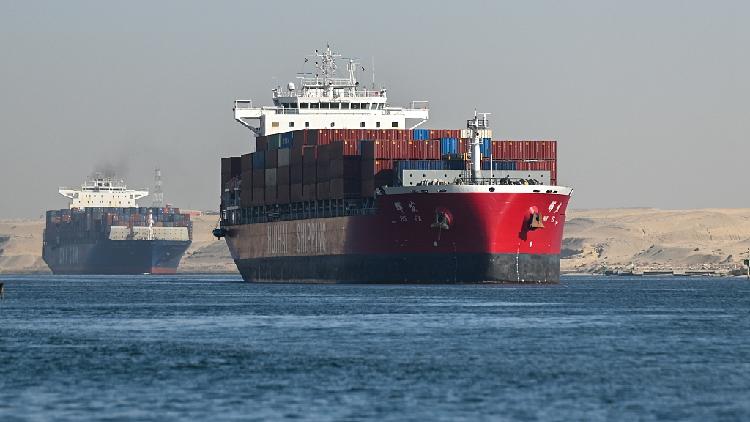UN: 42 percent drop in Suez Canal trade volume after Houthi attacks
[ad_1]

Houthi attacks on ships in the Red Sea have cut Suez Canal trade volume by 42 percent since November, a United Nations (UN) trade official said on Thursday.
The disruption adds to the strain shipping routes have been hit with on other major routes, including in the Black Sea, hampered by the conflict in Ukraine, and through the Panama Canal, suffering from climate change-induced low freshwater levels, threatening consumer price hikes, said Jan Hoffmann, chief of the Trade Facilitation Section of the UN Conference on Trade and Development (UNCTAD).
“We are concerned that the attacks on Red Sea shipping are adding tensions to a context of global trade disruptions due to geopolitics and climate change,” Hoffmann told reporters at the UN headquarters in a video briefing from Geneva. “These disruptions underline global trade’s vulnerability.”
He said maritime trade carries around 80 percent of the goods in world trade, with an even higher percentage for developing countries where shipping prices are already rising, notably in container and tanker shipping. Gas carriers, particularly, fear going through the Red Sea to Suez out of fear a Houthi attack could trigger a ship explosion.
UNCTAD said the Red Sea crisis is causing significant disruptions in the shipments of grains and other critical commodities from Europe, Russia and Ukraine, adding that this situation is leading to increased costs for consumers and serious risks to global food security, especially in regions like East Africa, South Asia, Southeast Asia and East Asia, which rely heavily on wheat imports from Europe and the Black Sea area.
Hoffmann said that prolonged disruptions in major trade routes would disrupt global supply chains, leading to delayed deliveries of goods, increased costs and potential inflation. The shipping industry is already experiencing immediate impacts, with spot rate increases from Asia to Europe exceeding the levels seen in 2023.
He said the rates between China and the Mediterranean have more than tripled since early December. Longer trade distances and higher freight rates caused by going around Africa could have cascading effects on food prices.
UNCTAD estimated that about half of the increase in food prices observed in 2022 was due to higher transport costs.
(Cover: A ship transits the Suez Canal towards the Red Sea in Ismailia, Egypt, January 10, 2024. /CFP)
[ad_2]
Source link

